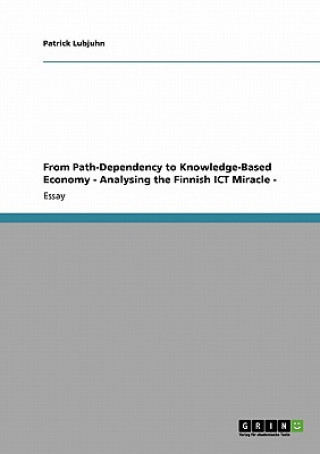
Kód: 01634946
From Path-Dependency to Knowledge-Based Economy - Analysing the Finnish ICT Miracle -
Autor Patrick Lubjuhn
Essay from the year 2005 in the subject Politics - International Politics - Topic: Globalization, Political Economics, printed single-sided, grade: 1,7, University of Münster, course: European Economic Policy Course, 14 entries in ... celý popis
- Jazyk:
 Angličtina
Angličtina - Vazba: Brožovaná
- Počet stran: 60
Nakladatelství: Grin Publishing, 2010
- Více informací o knize

Mohlo by se vám také líbit
Dárkový poukaz: Radost zaručena
- Darujte poukaz v libovolné hodnotě a my se postaráme o zbytek.
- Poukaz se vztahuje na celou naši nabídku.
- Elektronický poukaz vytisknete z e-mailu a můžete ihned darovat.
- Platnost poukazu je 12 měsíců od data vystavení.
Více informací o knize From Path-Dependency to Knowledge-Based Economy - Analysing the Finnish ICT Miracle -
Nákupem získáte 106 bodů
 Anotace knihy
Anotace knihy
Essay from the year 2005 in the subject Politics - International Politics - Topic: Globalization, Political Economics, printed single-sided, grade: 1,7, University of Münster, course: European Economic Policy Course, 14 entries in the bibliography, language: English, abstract: The fact that Finland is far away from the centres of European economic activities, for example the so-called blue banana, the Sunbelt and the Industrial axe, its relative economic success, especially in the field of information and communication technologies (ICT) makes it so interesting to analyse what is so characteristic for the Finish-ICT Miracle , as Paija (2001) has called it. During the last decade, Finland has become one of the world s most successful technology-intensive countries, finding itself in the front rank of the world s digital economies. In a decade, Finland went from being one of the least information and communication technologies specialized countries to become the single most specialized one. Currently the Finnish ICT sector, with Nokia as its locomotive, consists of some 6 thousand firms and accounts for approximately 10 percent of Finland s GDP (Rouvinen & Antilla 2003, p.87) and therefore have put Finland on the map of global economies. Determining for this raise of Finland is the development of a new growth path in this small Nordic country. Finland has managed to transform itself from a resource-based into a knowledge-based economy in a rather short period of time, especially without any major cutbacks in his highly developed welfare state system. The essential point of analysis in my essay deals with the question, how Finland managed to become one of the most successful ICT-countries in the world. How was it possible for this small Nordic country to go through a structural change from forestry to ICT? Nowadays, about 6000 firms (mostly small and medium-sized) and 200 electronics manufacturing services companies make up the so called ICT cluster . Some 350 of them are first-tier suppliers to Nokia, and represent the Nokia network (Daveri & Silva 2002, p.9).So I will start my analysis by defining structural change to create a basic which is necessary to understand the whole process. With the use of statistical data I will then try to explain Finland s way from forestry to ICT. A central aspect of the recent Finnish ICT-cluster is the importance of the mobile telecommunication industry with its driving engine, Nokia. This is analysed in part three. And finally of course, my essay ends up with a conclusion, summing up all the relevant information which is necessary to explain how Finland has turned into a knowledge-based economy.
 Parametry knihy
Parametry knihy
Zařazení knihy Knihy v angličtině Society & social sciences Politics & government
1063 Kč
- Plný název: From Path-Dependency to Knowledge-Based Economy - Analysing the Finnish ICT Miracle -
- Autor: Patrick Lubjuhn
- Jazyk:
 Angličtina
Angličtina - Vazba: Brožovaná
- Počet stran: 60
- EAN: 9783640667529
- ISBN: 3640667522
- ID: 01634946
- Nakladatelství: Grin Publishing
- Hmotnost: 91 g
- Rozměry: 210 × 148 × 4 mm
- Datum vydání: 05. August 2010
Oblíbené z jiného soudku
-

Case Against the Sexual Revolution
392 Kč -

Wretched of the Earth
290 Kč -

The Trigger
603 Kč -

State and Revolution
117 Kč -

Accidental Superpower
455 Kč -

My Autobiography
322 Kč -

Fight Like A Girl
276 Kč -

Against Civilization
403 Kč -

Abaddon Ascending: The Ancient Conspiracy at the Center of CERN's Most Secretive Mission
681 Kč -

The Lords of Poverty: The Power, Prestige, and Corruption of the International Aid Business
337 Kč -

Politics
1301 Kč -

Cold and the Dark
482 Kč -

Voices from the Contemporary Japanese Feminist Movement
1343 Kč -

Calculus of Consent
410 Kč -

Mafia Monograph, Part 1 of 4
521 Kč -

Harm Reduction or Harm Maintenance
798 Kč -
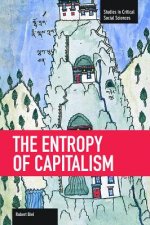
Entropy Of Capitalism
1124 Kč -

Israel Lobby and U. S. Foreign Policy
709 Kč -

Red Petrograd
482 Kč -

Troubled Constitutional Future
708 Kč -

Lineages of Modernity - A History of Humanity from the Stone Age to Homo Americanus
1270 Kč -

Inventing Vietnam
801 Kč -

City of Quartz
395 Kč -

Flash Boys - A Wall Street Revolt
272 Kč -
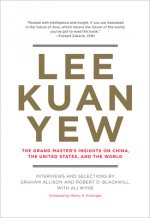
Lee Kuan Yew
500 Kč -

Giants
580 Kč -
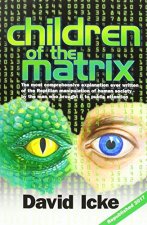
Children of the Matrix
454 Kč -

Queer Encounters with Communist Power
555 Kč -

Identity
303 Kč -

Deep State
387 Kč -
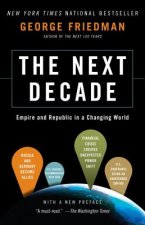
Next Decade
433 Kč -

Return of Marco Polo's World
357 Kč -

Force of Reason
493 Kč -

STRANGE DEATH OF EUROPE
473 Kč -

Political Science For Dummies
472 Kč -

Yoga of Eating
299 Kč -

Political Brain
359 Kč -

GREEN BOOK
196 Kč -

Politics: A Very Short Introduction
250 Kč -

Out of the Wreckage
482 Kč -

No Turning Back
303 Kč -

Urban Warfare in the Twenty-First Century
673 Kč -

Trade Marketing, Category Management, and Shopper Marketing
2211 Kč -

Spirit of the Laws
621 Kč -

USAF Military Working Dog Program - Scholar's Choice Edition
742 Kč -

Psychology of Politics
563 Kč -

Report From Iron Mountain
373 Kč -

Lies My Teacher Told Me
561 Kč -

Liberalism and Its Critics
854 Kč
Osobní odběr Praha, Brno a 12903 dalších
Copyright ©2008-24 nejlevnejsi-knihy.cz Všechna práva vyhrazenaSoukromíCookies





 Vrácení do měsíce
Vrácení do měsíce 571 999 099 (8-15.30h)
571 999 099 (8-15.30h)